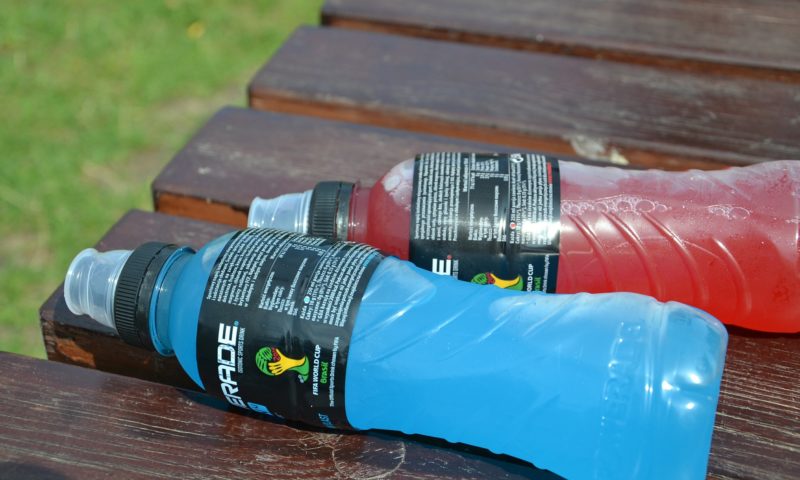For decades, sports drinks have boasted powerful nutrition and performance benefits. When you go to the grocery store, they line the aisles with brilliant colors and enticing labels. But are they really healthy for you, and can they aid in weight management?
Sports Drinks: Why They Do and Don’t Work
Sports drinks are sugar-sweetened beverages containing water, sodium, potassium, electrolytes, artificial colors and flavorings. They’re mostly designed for athletes who perform intense exercise lasting for more than 60 minutes. For people such as athletes who perform intense exercise, these drinks may help to restore energy and prevent water loss through sweat. Think of them as fuel to boost performance during great physical activity.
However, for the ordinary person who doesn’t perform a great deal of intense activity, sports drinks don’t offer much (if any) benefit. This is because fluid requirements can be met by drinking water. Plus, this type of individual generally doesn’t sweat enough to lose a large amount of electrolytes. For this reason, sports drinks may not be required.
How Do Sports Drinks Impact Weight Management?
The biggest drawback of sports drinks are the large amounts of sugar and sodium added. In fact, the majority of them have more grams of sugar and sodium than what is recommended for our daily intake. Unsurprisingly, sports drinks are commonly linked to weight gain.
Beyond weight gain, however, the consumption of sports drinks can produce other unwanted effects. For example, excess amounts of sodium may contribute to elevated blood pressure and an increased risk for stroke and heart disease. Likewise, too much sugar can affect blood sugar levels, metabolic health and other functions of the body.
To make matters worse, sports drinks are heavily advertised as healthy beverages. As consumers, we’re often taught to believe they can help us boost physical performance and therefore aid in weight-loss and weight management. If we fall victim to advertising, we run the risk of not only spending our money, but facing difficulty with weight management.
Sports Drinks: Best Practices
A sports drink every now and then isn’t a bad thing. Likewise, if you’re involved in strenuous and prolonged physical activity, they may actually be beneficial. Consider these “best practices” to help you sort through the information:
- If exercising to lose weight, drink water
- If exercising for an hour or less, drink water
- If doing sustained activity for more than 30 minutes, consider sports drinks
- If competing in a contest where performance is important, consider sports drinks
- Sports drinks are not energy drinks
- Watch out for a ton of added sugar or sodium
- Do your research before selecting sports drinks off the shelf
Want More Information on Sports Drinks?
To read the full article from Your Weight Matters Magazine, please CLICK HERE.






